Freexian Collaborators: Debian Contributions: Freexian meetup, debusine updates, lpr/lpd in Debian, and more! (by Utkarsh Gupta, Stefano Rivera)
 Contributing to Debian
is part of Freexian s mission. This article
covers the latest achievements of Freexian and their collaborators. All of this
is made possible by organizations subscribing to our
Long Term Support contracts and
consulting services.
Contributing to Debian
is part of Freexian s mission. This article
covers the latest achievements of Freexian and their collaborators. All of this
is made possible by organizations subscribing to our
Long Term Support contracts and
consulting services.
Freexian Meetup, by Stefano Rivera, Utkarsh Gupta, et al.
During DebConf, Freexian organized a
meetup for its
collaborators and those interested in learning more about Freexian and its
services. It was well received and many people interested in Freexian showed up.
Some developers who were interested in contributing to LTS came to get more
details about joining the project. And some prospective customers came to get to
know us and ask questions.
Sadly, the tragic loss of Abraham
shook DebConf, both individually and structurally. The meetup got rescheduled to
a small room without video coverage. With that, we still had a wholesome
interaction and here s a quick picture from the meetup taken by Utkarsh (which
is also why he s missing!).
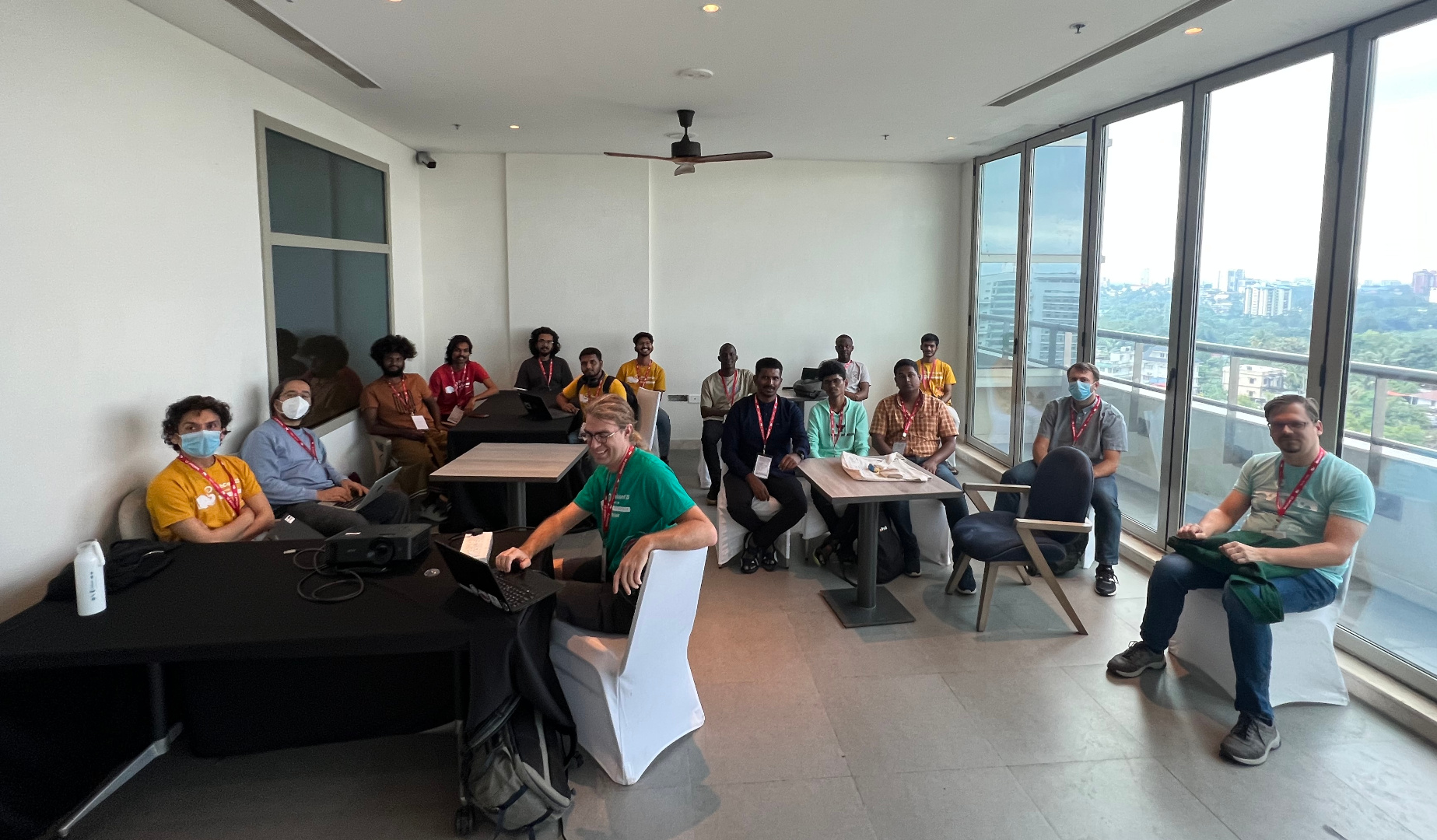
Debusine, by Rapha l Hertzog, et al.
Freexian has been investing into
debusine for a while, but
development speed is about to increase dramatically thanks to funding from
SovereignTechFund.de. Rapha l laid out the
5 milestones of
the funding contract, and filed the
issues for the first milestone.
Together with Enrico and Stefano, they established a
workflow
for the expanded team.
Among the first steps of this milestone, Enrico started to work on a
developer-friendly description of debusine
that we can use when we reach out to the many Debian contributors that we will
have to interact with. And Rapha l started the design work of the autopkgtest
and lintian tasks,
i.e. what s the interface to schedule such tasks, what behavior and what
associated options do we support?
At this point you might wonder what debusine is supposed to be let us try to
answer this: Debusine manages scheduling and distribution of Debian-related
build and QA tasks to a network of worker machines. It also manages the
resulting artifacts and provides the results in an easy to consume way.
We want to make it easy for Debian contributors to leverage all the great QA
tools that Debian provides. We want to build the next generation of Debian s
build infrastructure, one that will continue to reliably do what it already
does, but that will also enable distribution-wide experiments, custom package
repositories and custom workflows with advanced package reviews.
If this all sounds interesting to you, don t hesitate to
watch the project on salsa.debian.org
and to contribute.
lpr/lpd in Debian, by Thorsten Alteholz
During Debconf23, Till Kamppeter presented CPDB (Common Print Dialog Backend),
a new way to handle print queues. After this talk it was discussed whether the
old lpr/lpd based printing system could be abandoned in Debian or whether there
is still demand for it.
So Thorsten asked on the
debian-devel email list
whether anybody uses it. Oddly enough, these old packages are still useful:
- Within a small network it is easier to distribute a printcap file, than to
properly configure cups clients.
- One of the biggest manufacturers of WLAN router and DSL boxes only supports
raw queues when attaching an USB printer to their hardware. Admittedly the
CPDB still has problems with such raw queues.
- The Pharos printing system at MIT is still lpd-based.
As a result, the lpr/lpd stuff is not yet ready to be abandoned and Thorsten
will adopt the relevant packages (or rather move them under the umbrella of the
debian-printing team). Though it is not planned to develop new features, those
packages should at least have a maintainer. This month Thorsten adopted rlpr,
an utility for lpd printing without using /etc/printcap. The next one he is
working on is lprng, a lpr/lpd printer spooling system. If you know of any
other package that is also needed and still maintained by the QA team, please
tell Thorsten.
/usr-merge, by Helmut Grohne
Discussion about lifting the file move moratorium has been initiated with the
CTTE and the release team. A formal lift is
dependent on updating debootstrap in older suites though. A significant number
of packages can automatically move their systemd unit files if
dh_installsystemd and systemd.pc change their installation targets.
Unfortunately, doing so makes some packages FTBFS and therefore
patches have been filed.
The analysis tool, dumat, has been enhanced to better understand
which upgrade scenarios are considered supported
to reduce false positive bug filings and gained a mode for
local operation on a .changes file
meant for inclusion in salsa-ci. The filing of bugs from dumat is still
manual to improve the quality of reports.
Since September, the moratorium
has been lifted.
Miscellaneous contributions
- Rapha l updated Django s backport in bullseye-backports to match the latest
security release that was published in bookworm. Tracker.debian.org is still
using that backport.
- Helmut Grohne sent 13 patches for cross build failures.
- Helmut Grohne performed a maintenance upload of
debvm enabling its
use in autopkgtests.
- Helmut Grohne wrote an API-compatible reimplementation of
autopkgtest-build-qemu. It is powered by mmdebstrap, therefore
unprivileged, EFI-only and will soon be
included in mmdebstrap.
- Santiago continued the work regarding how to make it easier to
(automatically) test reverse dependencies.
An example
of the ongoing work was presented during the Salsa CI BoF at DebConf 23.
In fact, omniorb-dfsg test pipelines as the above were used for the
omniorb-dfsg 4.3.0 transition,
verifying how the reverse dependencies (tango, pytango and omnievents) were
built and how their autopkgtest jobs run with the to-be-uploaded omniorb-dfsg
new release.
- Utkarsh and Stefano attended and helped run DebConf 23. Also continued
winding up DebConf 22 accounting.
- Anton Gladky did
some science team uploads
to fix RC bugs.
lpr/lpd in Debian, by Thorsten Alteholz
During Debconf23, Till Kamppeter presented CPDB (Common Print Dialog Backend),
a new way to handle print queues. After this talk it was discussed whether the
old lpr/lpd based printing system could be abandoned in Debian or whether there
is still demand for it.
So Thorsten asked on the
debian-devel email list
whether anybody uses it. Oddly enough, these old packages are still useful:
- Within a small network it is easier to distribute a printcap file, than to
properly configure cups clients.
- One of the biggest manufacturers of WLAN router and DSL boxes only supports
raw queues when attaching an USB printer to their hardware. Admittedly the
CPDB still has problems with such raw queues.
- The Pharos printing system at MIT is still lpd-based.
As a result, the lpr/lpd stuff is not yet ready to be abandoned and Thorsten
will adopt the relevant packages (or rather move them under the umbrella of the
debian-printing team). Though it is not planned to develop new features, those
packages should at least have a maintainer. This month Thorsten adopted rlpr,
an utility for lpd printing without using /etc/printcap. The next one he is
working on is lprng, a lpr/lpd printer spooling system. If you know of any
other package that is also needed and still maintained by the QA team, please
tell Thorsten.
/usr-merge, by Helmut Grohne
Discussion about lifting the file move moratorium has been initiated with the
CTTE and the release team. A formal lift is
dependent on updating debootstrap in older suites though. A significant number
of packages can automatically move their systemd unit files if
dh_installsystemd and systemd.pc change their installation targets.
Unfortunately, doing so makes some packages FTBFS and therefore
patches have been filed.
The analysis tool, dumat, has been enhanced to better understand
which upgrade scenarios are considered supported
to reduce false positive bug filings and gained a mode for
local operation on a .changes file
meant for inclusion in salsa-ci. The filing of bugs from dumat is still
manual to improve the quality of reports.
Since September, the moratorium
has been lifted.
Miscellaneous contributions
- Rapha l updated Django s backport in bullseye-backports to match the latest
security release that was published in bookworm. Tracker.debian.org is still
using that backport.
- Helmut Grohne sent 13 patches for cross build failures.
- Helmut Grohne performed a maintenance upload of
debvm enabling its
use in autopkgtests.
- Helmut Grohne wrote an API-compatible reimplementation of
autopkgtest-build-qemu. It is powered by mmdebstrap, therefore
unprivileged, EFI-only and will soon be
included in mmdebstrap.
- Santiago continued the work regarding how to make it easier to
(automatically) test reverse dependencies.
An example
of the ongoing work was presented during the Salsa CI BoF at DebConf 23.
In fact, omniorb-dfsg test pipelines as the above were used for the
omniorb-dfsg 4.3.0 transition,
verifying how the reverse dependencies (tango, pytango and omnievents) were
built and how their autopkgtest jobs run with the to-be-uploaded omniorb-dfsg
new release.
- Utkarsh and Stefano attended and helped run DebConf 23. Also continued
winding up DebConf 22 accounting.
- Anton Gladky did
some science team uploads
to fix RC bugs.
systemd unit files if
dh_installsystemd and systemd.pc change their installation targets.
Unfortunately, doing so makes some packages FTBFS and therefore
patches have been filed.
The analysis tool, dumat, has been enhanced to better understand
which upgrade scenarios are considered supported
to reduce false positive bug filings and gained a mode for
local operation on a .changes file
meant for inclusion in salsa-ci. The filing of bugs from dumat is still
manual to improve the quality of reports.
Since September, the moratorium
has been lifted.
Miscellaneous contributions
- Rapha l updated Django s backport in bullseye-backports to match the latest
security release that was published in bookworm. Tracker.debian.org is still
using that backport.
- Helmut Grohne sent 13 patches for cross build failures.
- Helmut Grohne performed a maintenance upload of
debvm enabling its
use in autopkgtests.
- Helmut Grohne wrote an API-compatible reimplementation of
autopkgtest-build-qemu. It is powered by mmdebstrap, therefore
unprivileged, EFI-only and will soon be
included in mmdebstrap.
- Santiago continued the work regarding how to make it easier to
(automatically) test reverse dependencies.
An example
of the ongoing work was presented during the Salsa CI BoF at DebConf 23.
In fact, omniorb-dfsg test pipelines as the above were used for the
omniorb-dfsg 4.3.0 transition,
verifying how the reverse dependencies (tango, pytango and omnievents) were
built and how their autopkgtest jobs run with the to-be-uploaded omniorb-dfsg
new release.
- Utkarsh and Stefano attended and helped run DebConf 23. Also continued
winding up DebConf 22 accounting.
- Anton Gladky did
some science team uploads
to fix RC bugs.
debvm enabling its
use in autopkgtests.autopkgtest-build-qemu. It is powered by mmdebstrap, therefore
unprivileged, EFI-only and will soon be
included in mmdebstrap.In fact, omniorb-dfsg test pipelines as the above were used for the omniorb-dfsg 4.3.0 transition, verifying how the reverse dependencies (tango, pytango and omnievents) were built and how their autopkgtest jobs run with the to-be-uploaded omniorb-dfsg new release.
 Like each month, have a look at the work funded by
Like each month, have a look at the work funded by  Last Sunday, our local Debian user group gathered to chat, to work on Debian and
to do other, non-Debian related hacking. A "Debian & Stuff"!
It had been a while since we held a proper meetup. Our last event was the
Last Sunday, our local Debian user group gathered to chat, to work on Debian and
to do other, non-Debian related hacking. A "Debian & Stuff"!
It had been a while since we held a proper meetup. Our last event was the
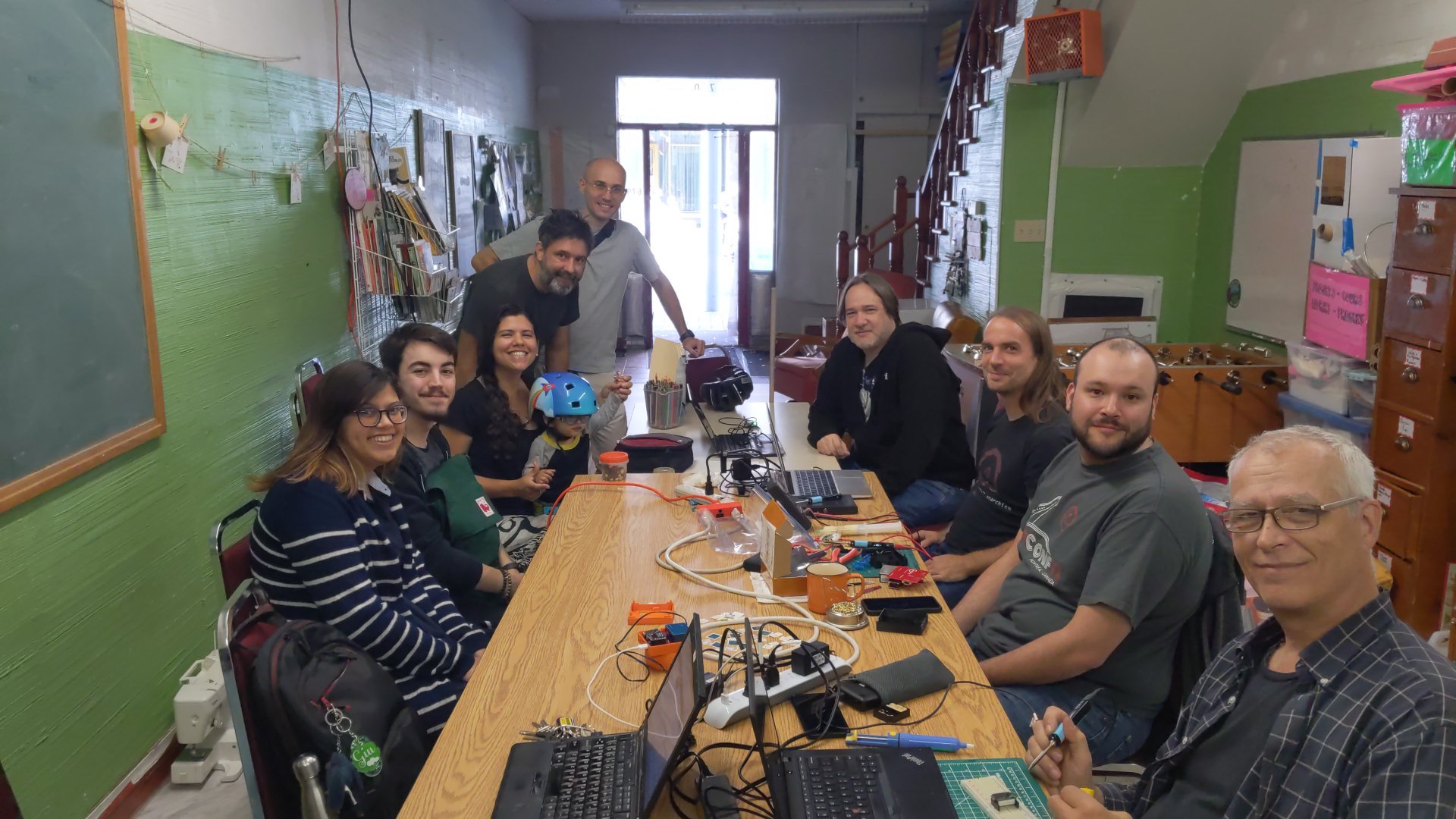 Many people came to the event, including some new ones. Although people always
tend to come and go during the day, a total of 12 people attended the event.
As always, people worked on very different projects! One of the focus of this
D&S was assembling
Many people came to the event, including some new ones. Although people always
tend to come and go during the day, a total of 12 people attended the event.
As always, people worked on very different projects! One of the focus of this
D&S was assembling  Otherwise, some Debian work was also done:
Otherwise, some Debian work was also done:
 O Debian Day em Macei 2023 foi realizado no audit rio do Senai em Macei com
apoio e realiza o do
O Debian Day em Macei 2023 foi realizado no audit rio do Senai em Macei com
apoio e realiza o do 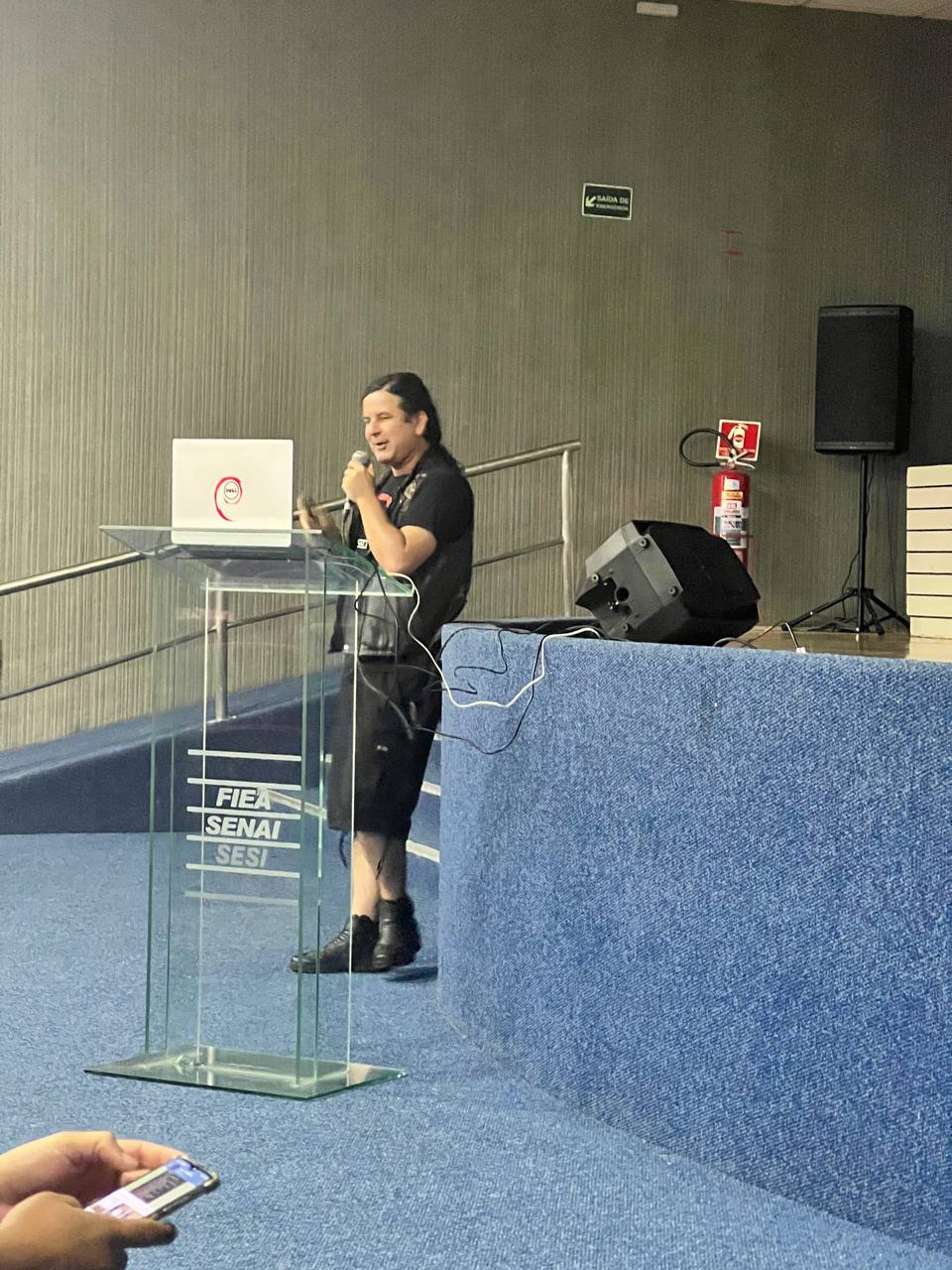
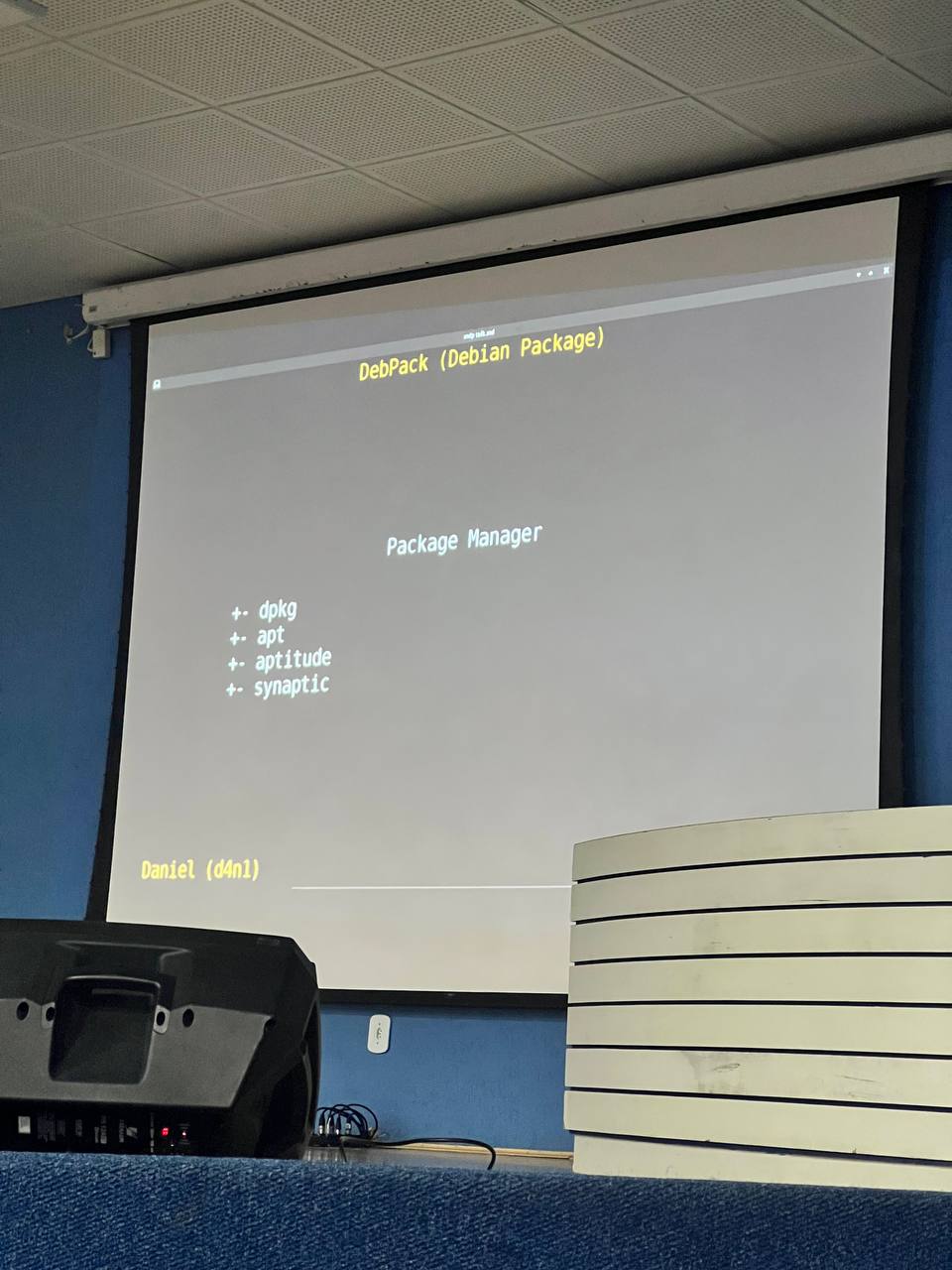
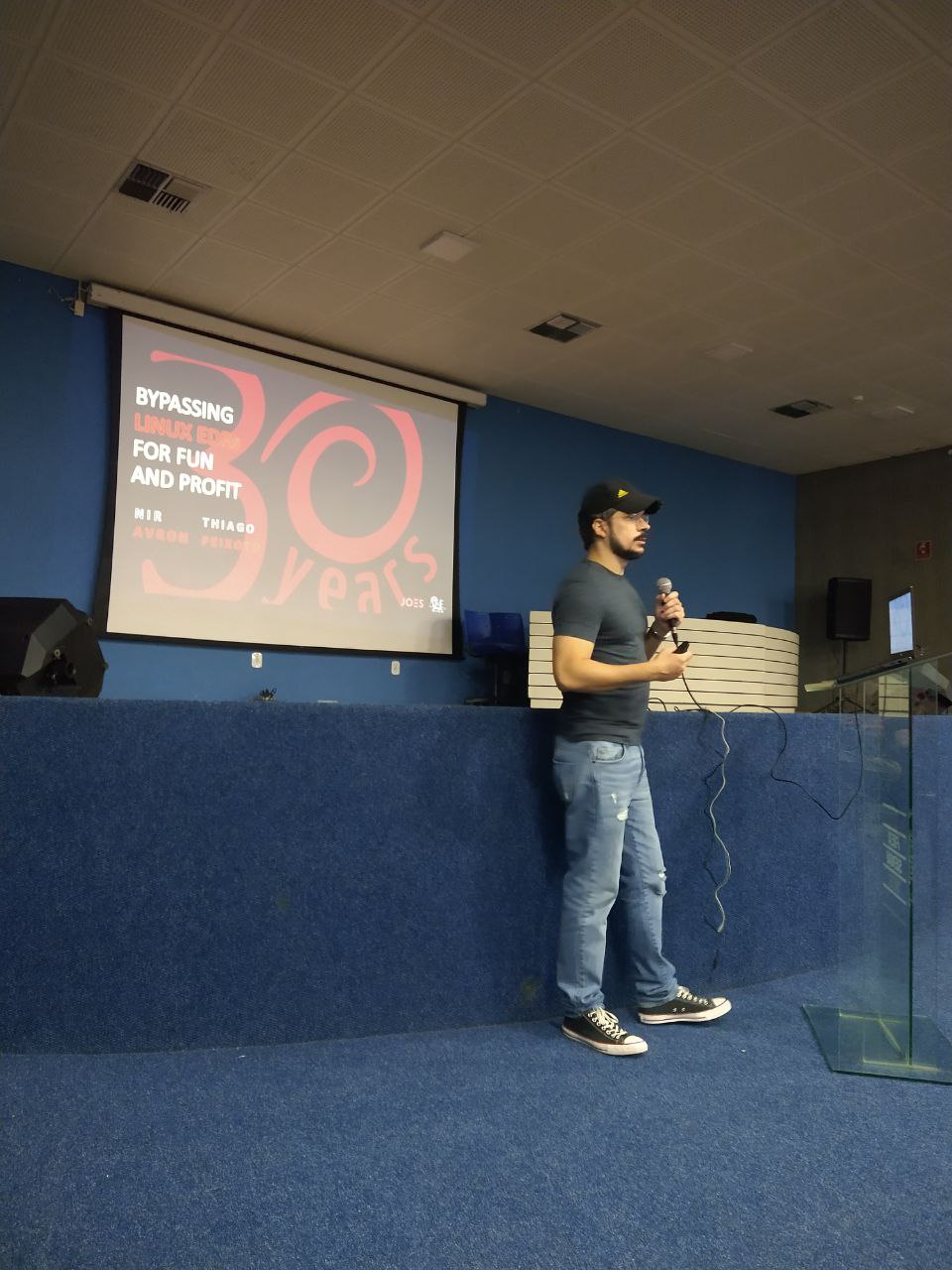
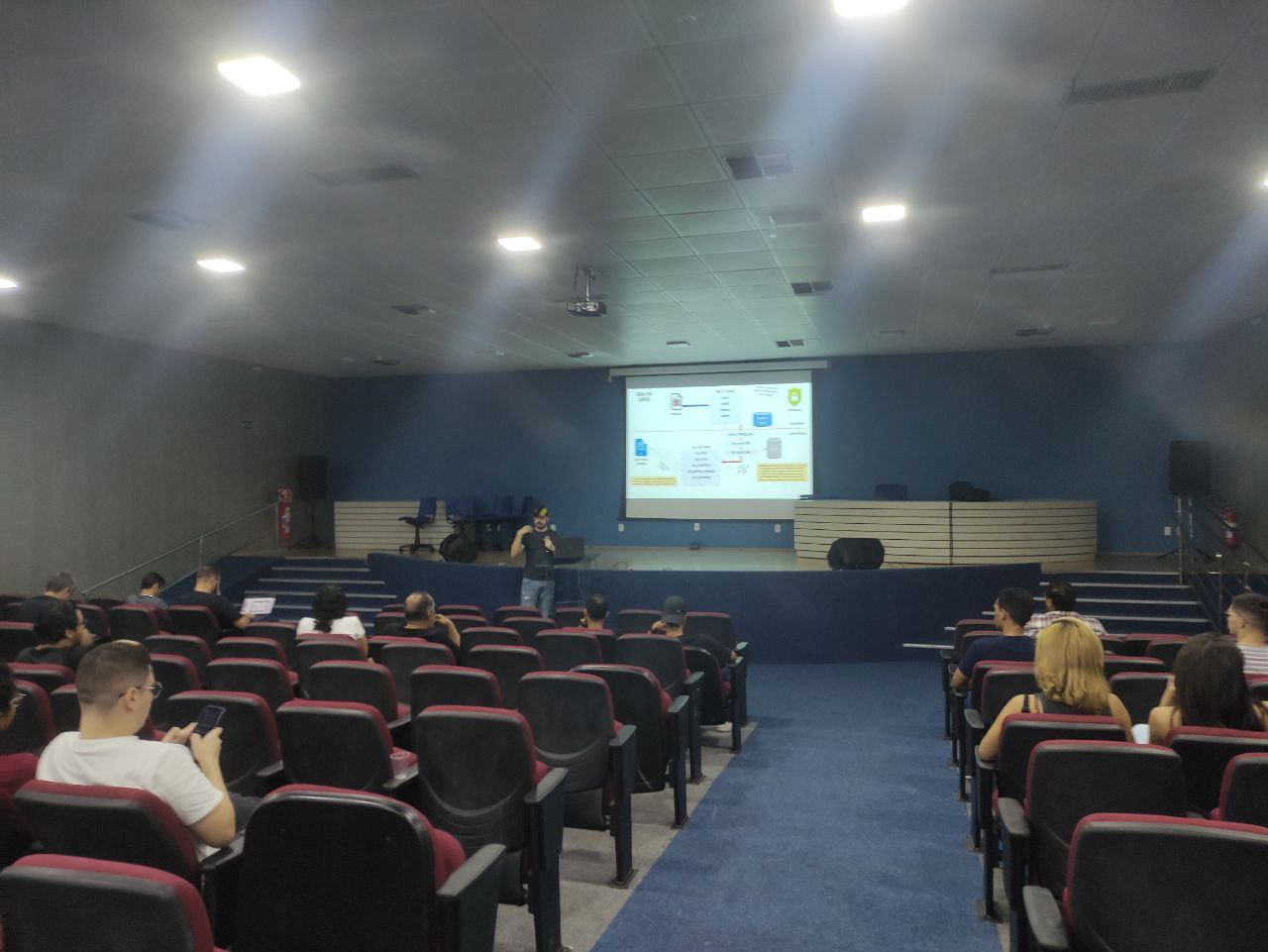

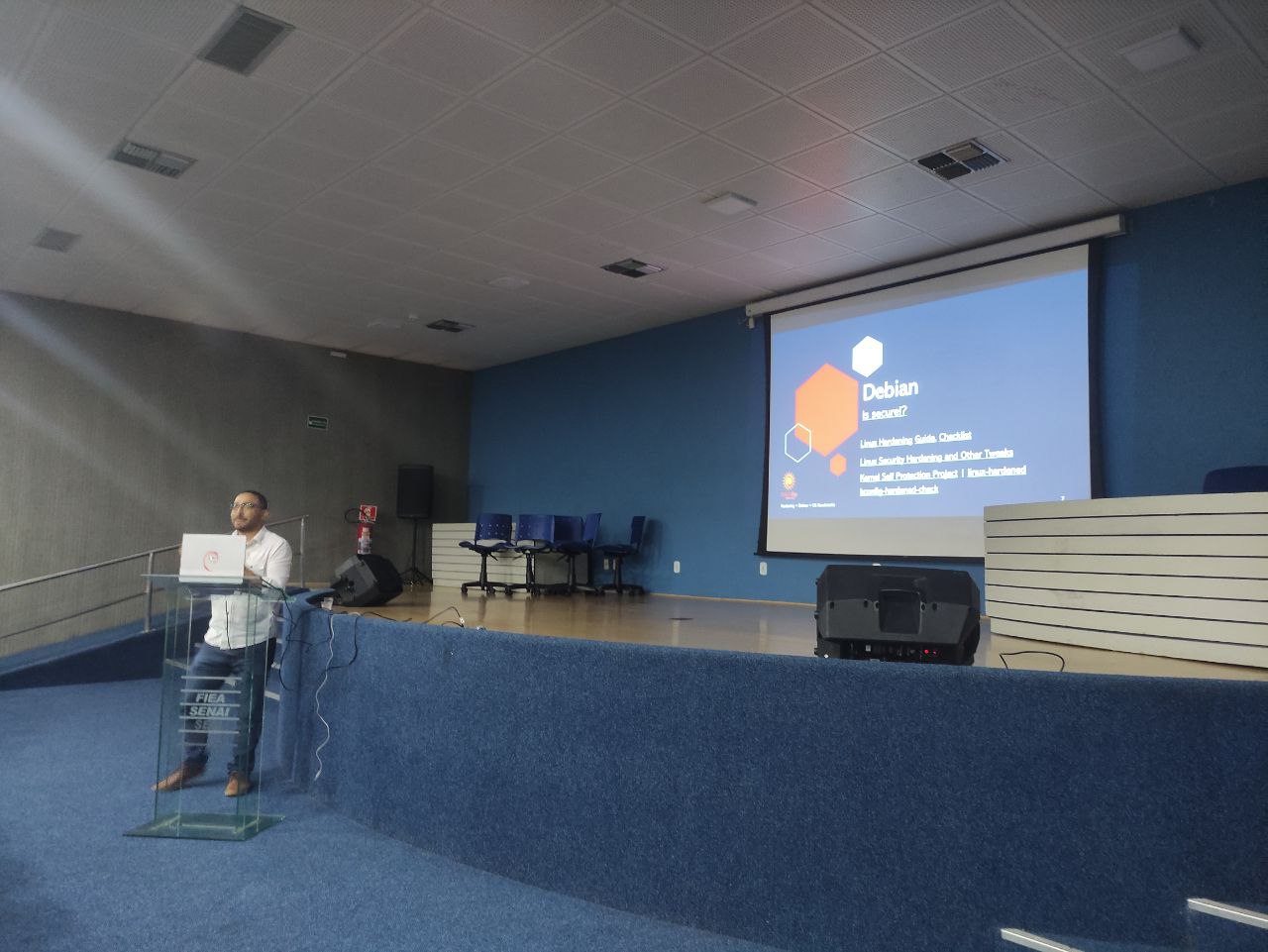
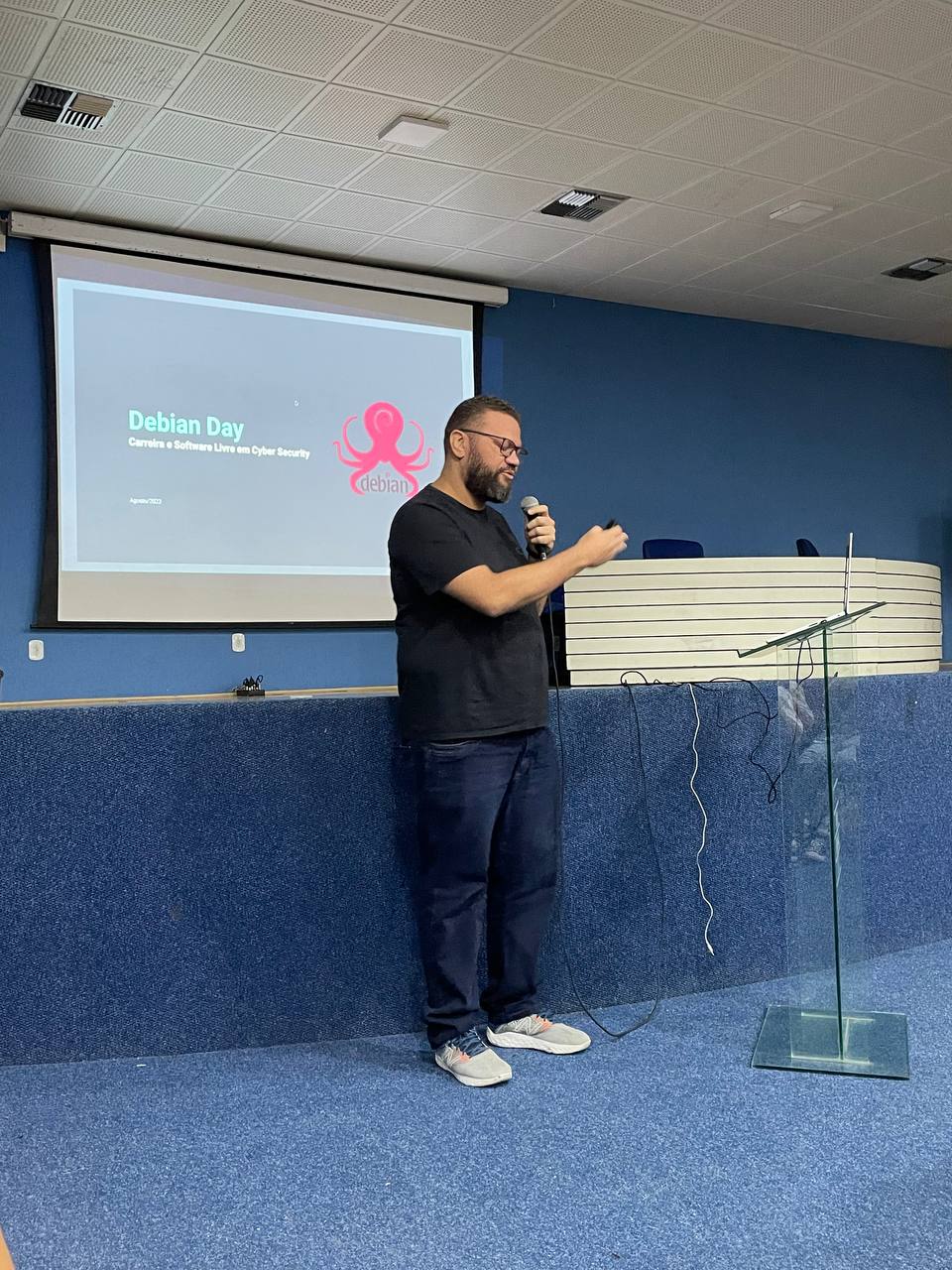
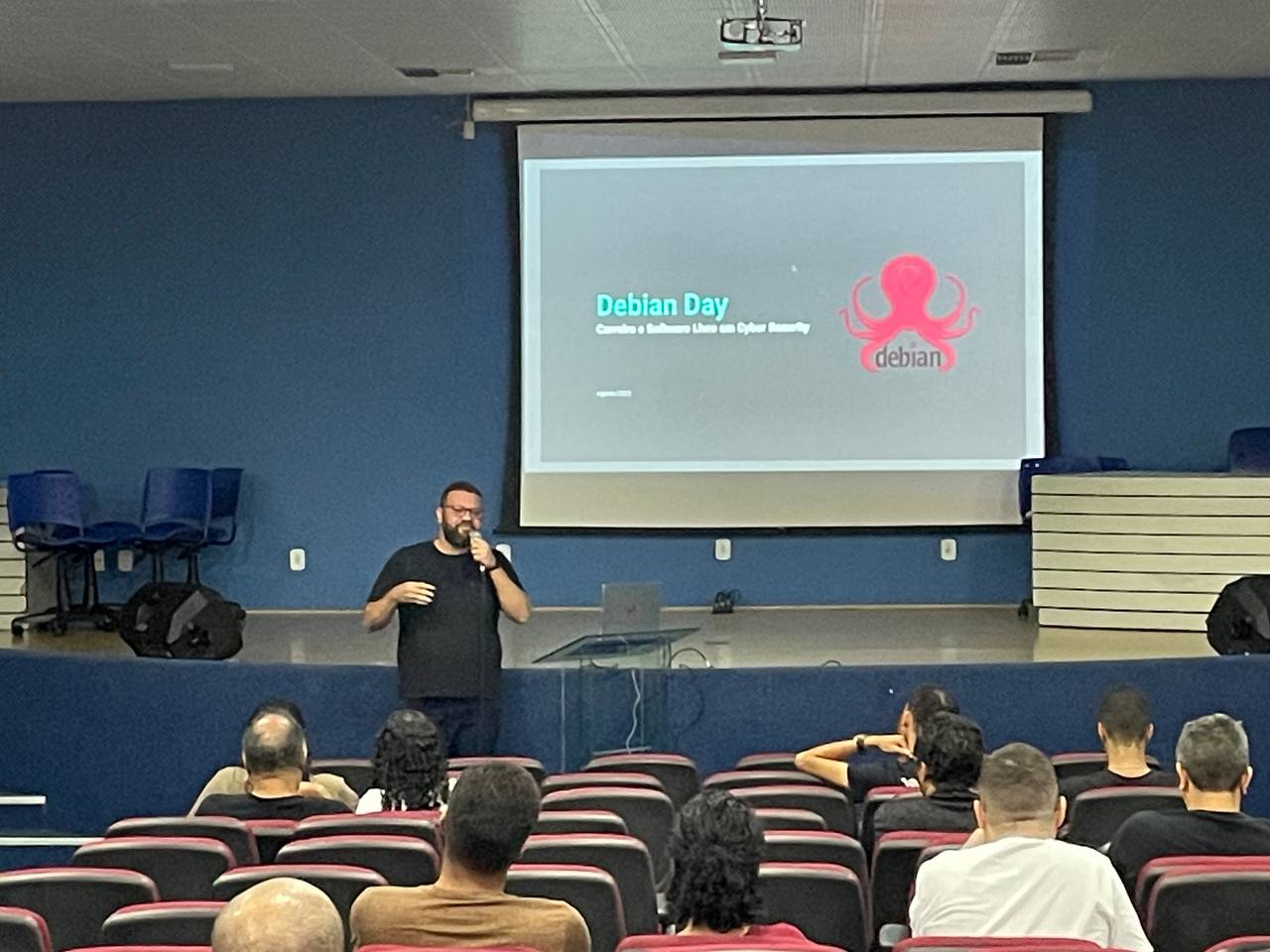

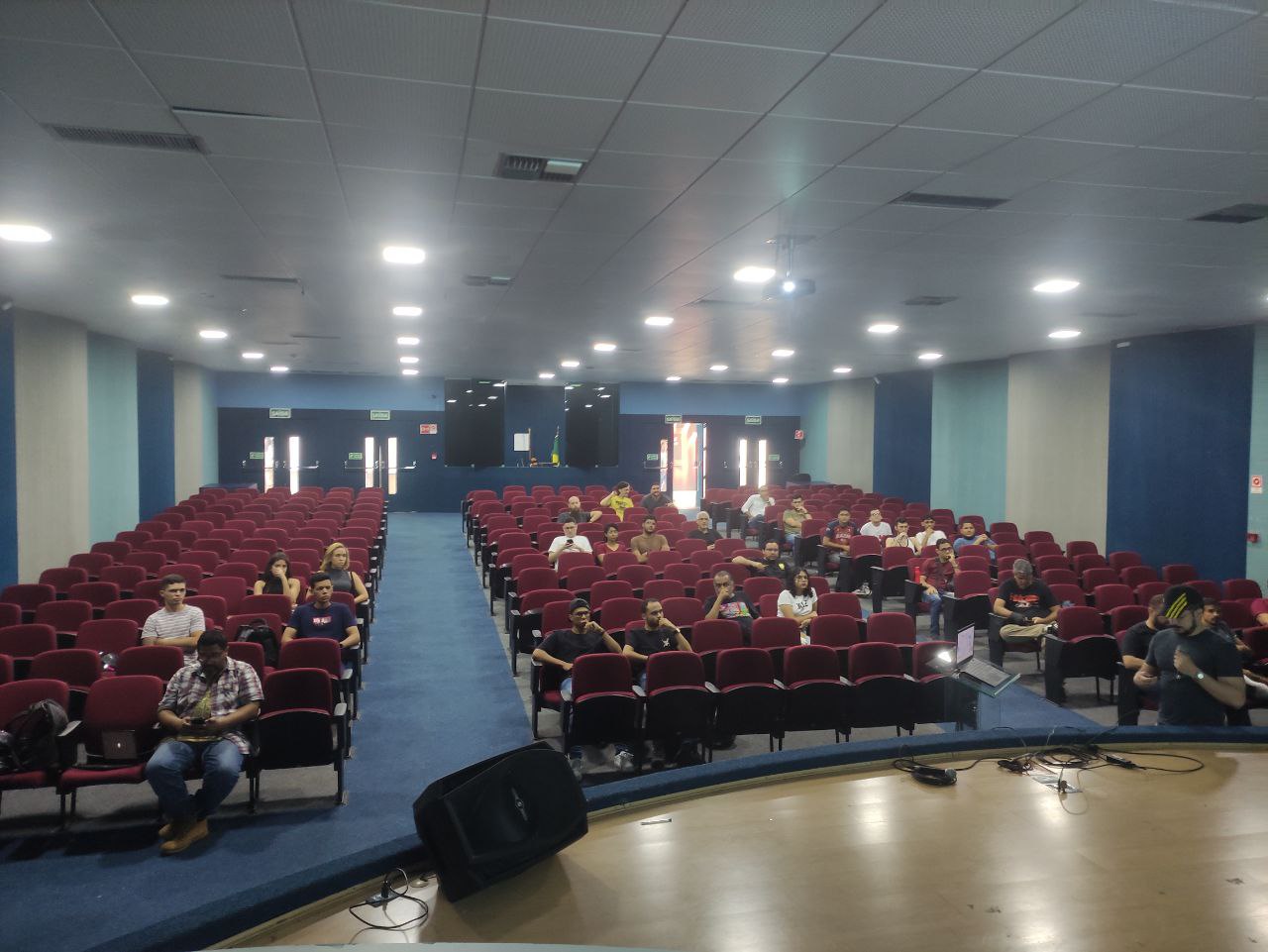
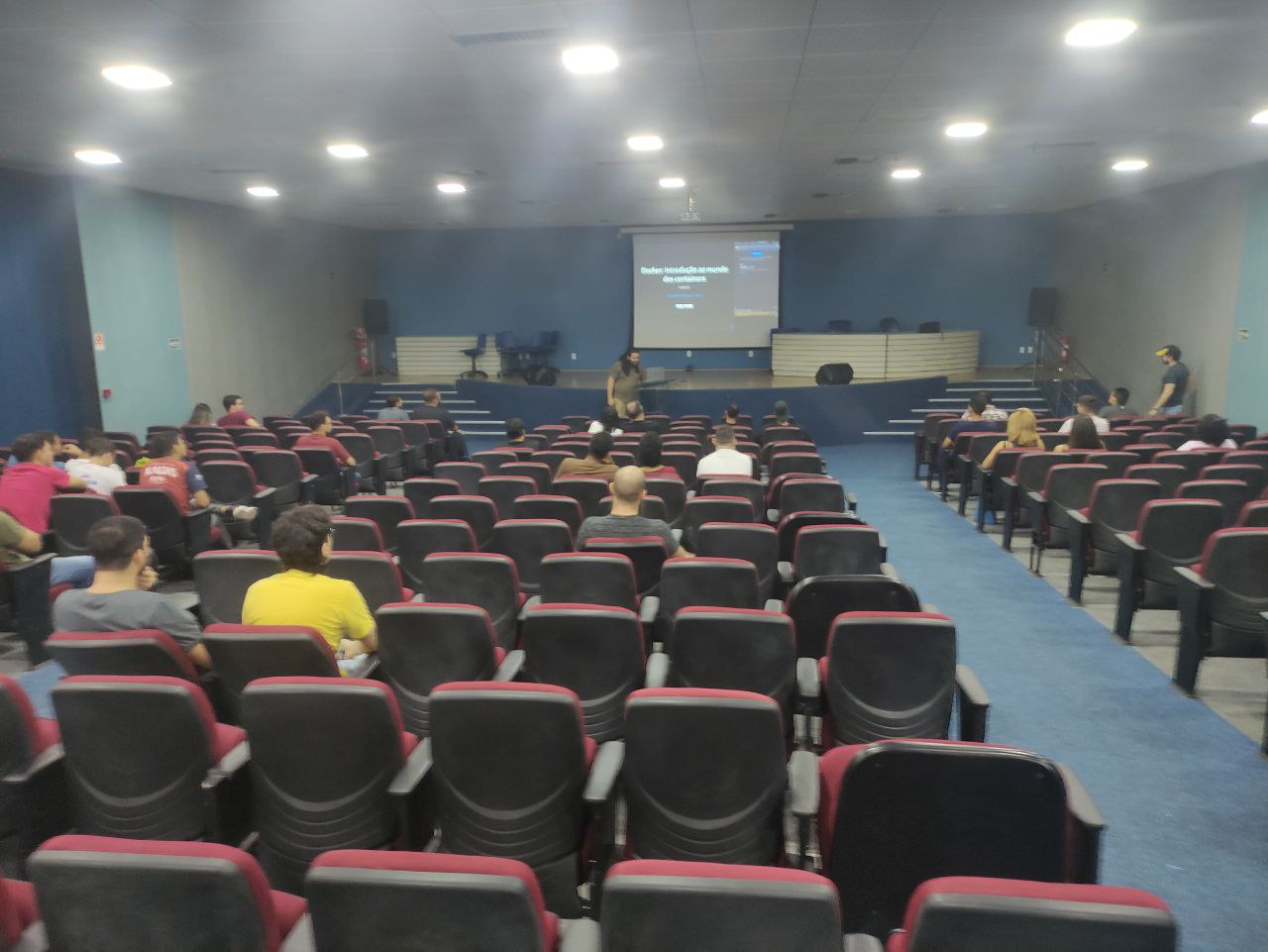








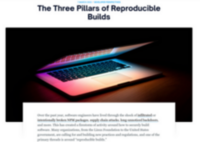
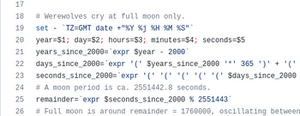






 I was about to setup a tcpping based monitoring on smokeping but then I discovered this was based on tcptraceroute which on Debian comes setuid root and the alternative is to use sudo, so, anyway you put it... this runs with root privileges.I didn't like what I saw, so, I said... couldn't we do this with nmap without needing root?And so I started to write a little script that could mimic what tcpping and tcptraceroute were outputing but using nmap.The result is
I was about to setup a tcpping based monitoring on smokeping but then I discovered this was based on tcptraceroute which on Debian comes setuid root and the alternative is to use sudo, so, anyway you put it... this runs with root privileges.I didn't like what I saw, so, I said... couldn't we do this with nmap without needing root?And so I started to write a little script that could mimic what tcpping and tcptraceroute were outputing but using nmap.The result is